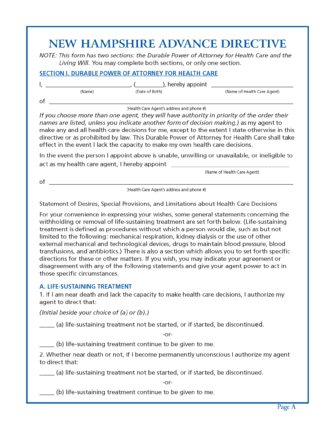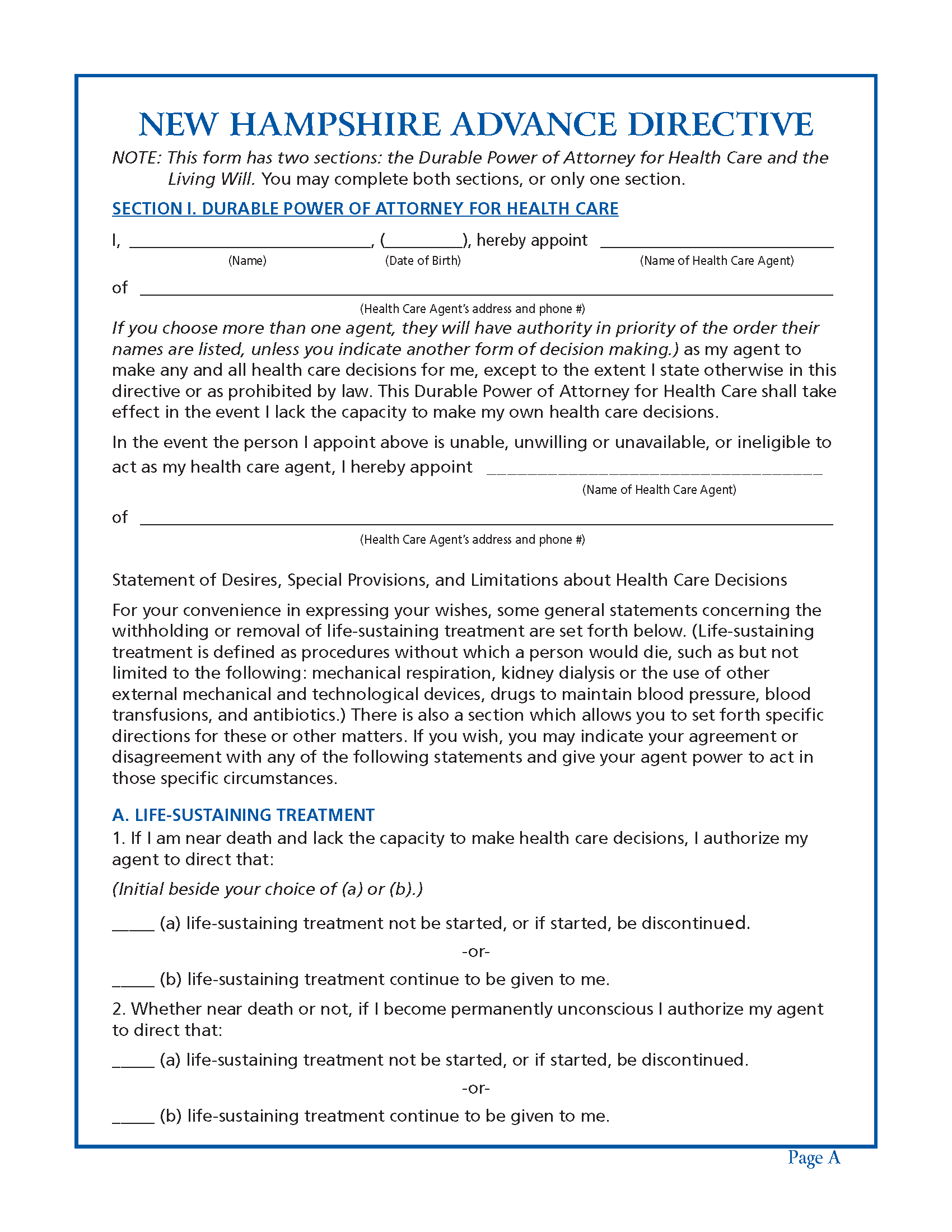Signing Requirements
An advance directive must be signed by two witnesses or a notary public.[1]
The witnesses cannot be any of the following:
- The principal’s agent or surrogate.
- The principal’s spouse or heir.
- Entitled to part of the principal’s estate.
- The attending practitioner or person under their direction.
Furthermore, only one of the witnesses may be the principal’s care provider or their employee.
Advance Directive (Preview)
Revocation
An advance directive can be revoked by any of the following[2]:
- A written revocation delivered to the agent, surrogate, or care provider.
- Oral revocation in the presence of two witnesses.
- Executing a subsequent advance directive.
- Divorce, legal separation, annulment, or protective order if the agent/surrogate is the principal’s spouse.

